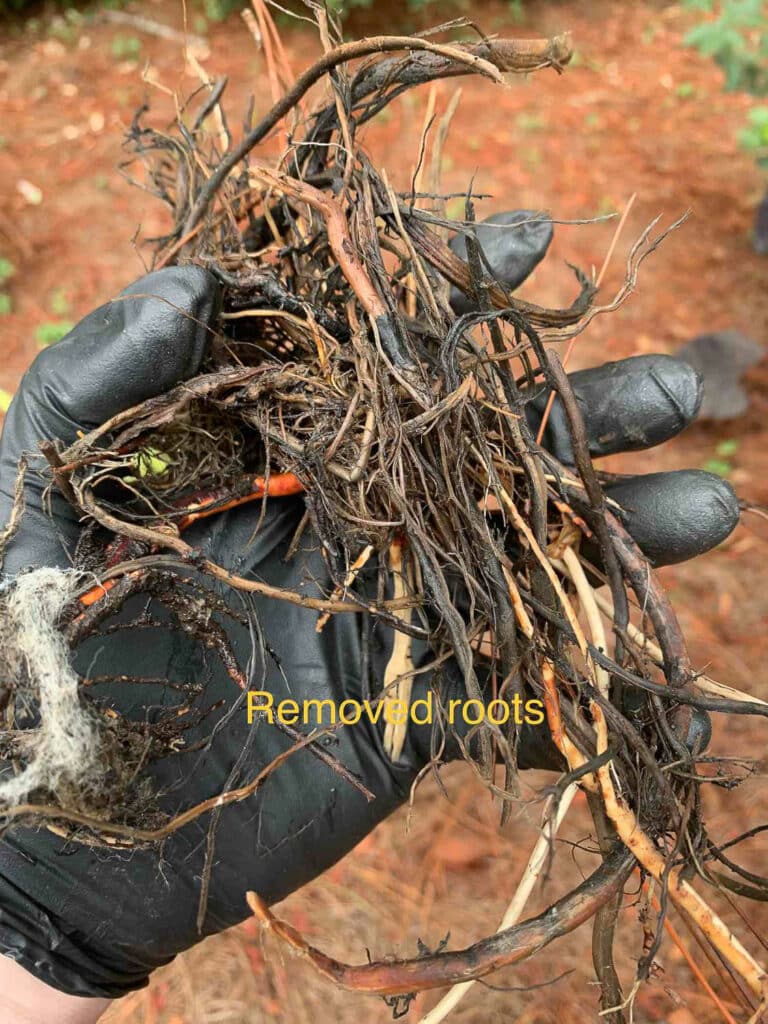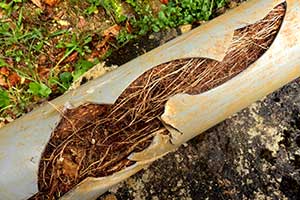Can Tree Roots Really Damage My Sewer Line in Atlanta?
If you live in Atlanta, you know how many beautiful old trees line our streets and shade our homes. While these trees add character and value to our neighborhoods, their roots can sometimes cause serious plumbing problems. One of the most common issues we see at Fix & Flow Plumbing is tree roots damaging sewer lines. But how does this happen, and what can you do about it?
Why Tree Roots Target Sewer Lines
Tree roots are always searching for water and nutrients. Unfortunately, your sewer line is the perfect source of both. Even the smallest crack or loose joint in a pipe can release moisture into the surrounding soil, attracting nearby roots. Once a root finds its way in, it will continue to grow inside the pipe, spreading and thickening over time.
joint in a pipe can release moisture into the surrounding soil, attracting nearby roots. Once a root finds its way in, it will continue to grow inside the pipe, spreading and thickening over time.
Signs Tree Roots May Be in Your Sewer Line
Not sure if roots are the culprit? Here are some common warning signs Atlanta homeowners should watch out for:
- Slow drains throughout the house: If multiple sinks, tubs, or toilets are draining slowly, it may be a main sewer line issue.
- Frequent clogs: Roots can trap debris like toilet paper and grease, leading to recurring blockages.
- Gurgling sounds: Bubbling or gurgling noises from drains or toilets can signal an obstruction in the main line.
- Sewage backup: The most serious sign is wastewater backing up into your home—this needs immediate attention.
- Unpleasant odors: If you smell sewage in your yard or home, it could mean roots have damaged or blocked your line.
How Atlanta’s Older Homes Make Sewer Lines More Vulnerable
In many older neighborhoods like Grant Park, Virginia-Highland, and Inman Park, homes were built with clay or cast-iron sewer pipes. Over time, these materials become brittle, corrode, or develop small cracks. Roots can easily find their way into these openings. Even newer PVC pipes aren’t immune if connections loosen or shift due to soil movement.
What Happens If Roots Keep Growing?
If ignored, tree roots will keep spreading inside your sewer line, creating a dense blockage that water and waste can’t move past. Eventually, this can cause:
- Complete sewer line collapse: Severe root intrusion can break down pipes completely, requiring full replacement.
- Expensive property damage: Backups can flood basements or cause sewage to seep into your yard.
- Health risks: Standing sewage poses health hazards for you and your family.
How We Diagnose Root Damage
At Fix & Flow Plumbing, we use specialized sewer camera inspections to see exactly what’s happening inside your pipes. This allows us to confirm whether tree roots are the issue and show you a clear video of the problem. From there, we recommend the best solution based on the severity of the damage.
Solutions for Tree Root Sewer Line Damage
Depending on the condition of your pipes, solutions may include:
- Hydro jetting: Using high-pressure water to cut and clear roots from the line.
- Root cutting tools: Mechanically removing roots to restore flow.
- Pipe relining: Installing a durable lining inside your existing pipe to seal cracks and prevent future intrusion.
- Sewer line replacement: For pipes that are too damaged, we may recommend replacing all or part of the line with new piping.
Preventing Tree Root Problems in the Future
While you can’t stop roots from growing, you can reduce the risk of future damage:
- Schedule routine sewer line inspections every couple of years.
- Avoid planting trees and shrubs near sewer lines.
- Keep an eye out for early warning signs like slow drains or gurgling toilets.
- Address minor issues promptly before they turn into major repairs.
Call Your Local Atlanta Sewer Line Experts
If you suspect tree roots are damaging your sewer line, don’t wait until you have a full-blown backup. At Fix & Flow Plumbing Co., we help homeowners throughout Intown Atlanta—from Decatur to Midtown—identify and solve sewer line issues quickly and effectively. Whether it’s a simple clearing or a full replacement, we’ll guide you through your options with honesty and care.
Call Fix & Flow Plumbing today to schedule a sewer line inspection and protect your home from costly damage.
